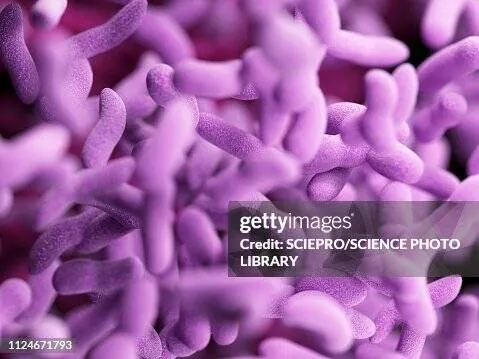
Revolutionizing Coral Reef Health Monitoring: How Microbes Could Save Our Oceans
2025-05-19
Author: Emily
The Hidden Heroes of Coral Reefs
Coral reefs, often dubbed the rainforests of the sea, are teeming with vibrant life and color. Yet, the secret to their survival lies within the microscopic organisms inhabiting them—bacteria, archaea, and other tiny life forms that may hold the key to understanding the reefs' health.
A Groundbreaking Study
Recent research conducted by experts from the Woods Hole Oceanographic Institution (WHOI) and George Mason University unveils the potential of using these microbes to monitor coral reef health. With climate change, pollution, and habitat destruction posing significant threats, this innovative approach brings new hope for coral recovery.
Why Microbes Matter
Amy Apprill, a leading marine scientist at WHOI, highlighted the importance of microbes in assessing reef health. "By considering microbes, we gain a deeper understanding of the overall condition of reefs," she asserts. This study aims to make these microbial insights accessible for reef conservationists, park managers, and policy-makers.
An Evolution in Monitoring Techniques
Traditionally, coral health assessments relied on visible indicators like bleaching or color changes. However, microbial analysis offers a fresh perspective, providing faster, real-time feedback about reef conditions beneath the surface.
Broad Applications for Conservationists
The beauty of microbial sampling is that it’s non-invasive and adaptable. Simple water samples can be analyzed using basic tools like microscopes or advanced techniques like genetic sequencing. With this flexibility, various stakeholders—from conservation groups to policy-makers—can efficiently utilize microbial data.
Microbes as Environmental Sentinels
Microbes respond dynamically to their environment, reacting to factors like nutrients, oxygen, and temperature. For instance, the presence of E. coli might indicate pollution, while certain beneficial microbes can point to a thriving ecosystem. This valuable data can guide restoration projects and conservation efforts.
Embracing a Technological Future
This microbial approach isn’t just theoretical; it's actionable. The study’s authors advocate for uniform methodologies and data sharing across the coral reef community—an essential step to strengthen global reef health management.
Proactive Monitoring for Emerging Threats
Consistent microbial sampling allows for tracking changes over time, paving the way for expansive monitoring efforts. Researchers aspire to create vast databases containing microbial data from reefs worldwide, which could leverage machine learning to predict coral health and establish a microbial health index.
Combating the Coral Bleaching Crisis
As climate change accelerates, incidents of coral bleaching—where corals expel their vital algae—are rising. To address this crisis, the research underscores the need for all available tools, including microbial monitoring, to bolster coral resilience.
A Call to Action
Apprill emphasizes the urgency of providing practical information to decision-makers, asserting that microbes can greatly enhance our understanding and management of coral ecosystems. By recognizing the critical role of these microscopic organisms, we can embark on a path to saving our reefs before it's too late.
The full study has been published in Cell Reports Sustainability, marking a significant step towards more effective coral reef conservation.









 Brasil (PT)
Brasil (PT)
 Canada (EN)
Canada (EN)
 Chile (ES)
Chile (ES)
 Česko (CS)
Česko (CS)
 대한민국 (KO)
대한민국 (KO)
 España (ES)
España (ES)
 France (FR)
France (FR)
 Hong Kong (EN)
Hong Kong (EN)
 Italia (IT)
Italia (IT)
 日本 (JA)
日本 (JA)
 Magyarország (HU)
Magyarország (HU)
 Norge (NO)
Norge (NO)
 Polska (PL)
Polska (PL)
 Schweiz (DE)
Schweiz (DE)
 Singapore (EN)
Singapore (EN)
 Sverige (SV)
Sverige (SV)
 Suomi (FI)
Suomi (FI)
 Türkiye (TR)
Türkiye (TR)
 الإمارات العربية المتحدة (AR)
الإمارات العربية المتحدة (AR)